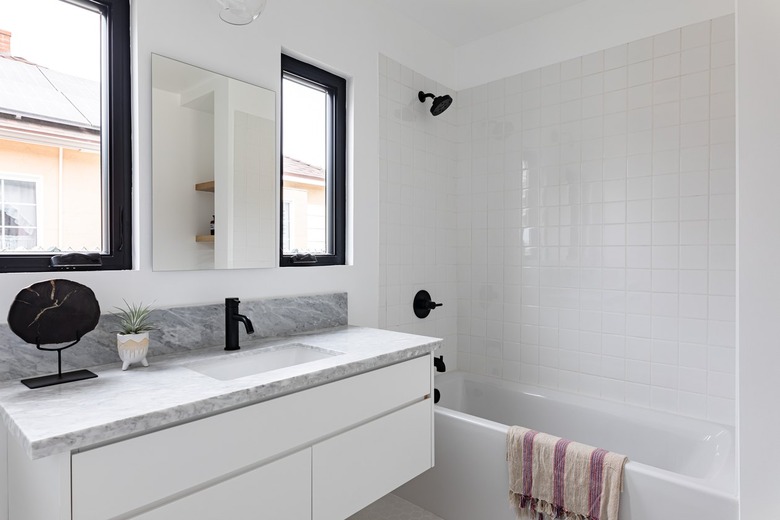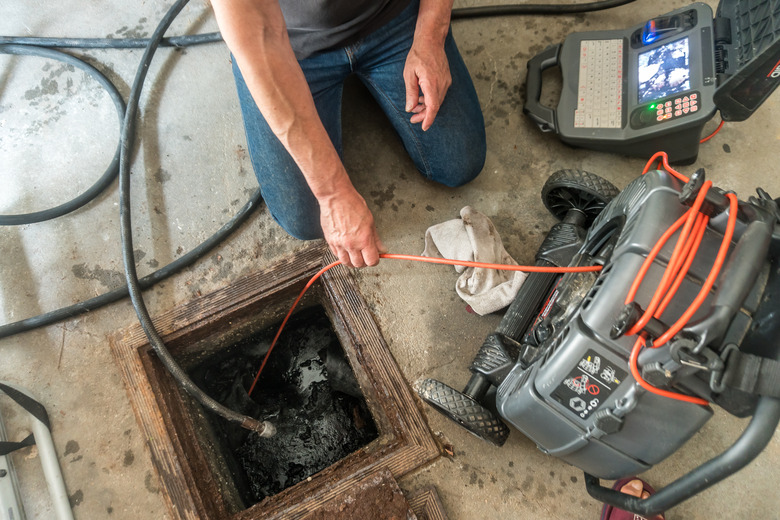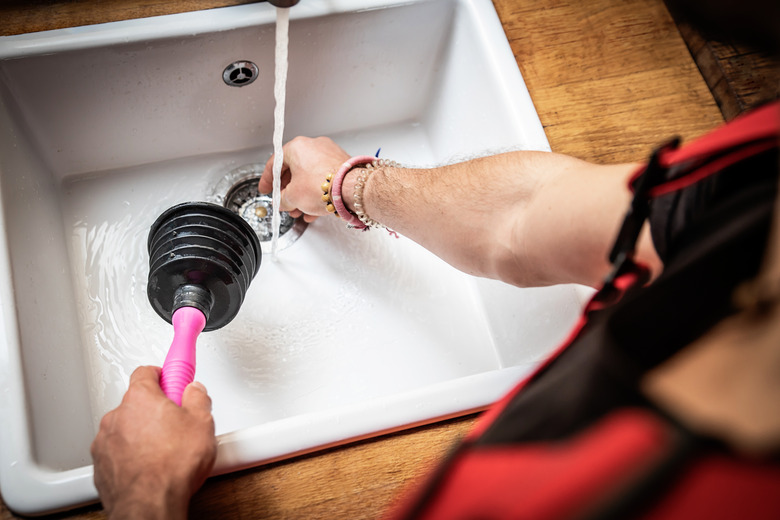What To Know Before You Hire A Plumber
A plumber is very often the hero who is able to rescue you from some of the most challenging and urgent problems a homeowner can face. You get a call from a neighbor while you are on a short winter vacation in Florida telling you that a frozen, burst pipe at your home is pouring hundreds of gallons of water onto your hardwood floors. What can you possibly do except hire a plumber to rush into action instantly?
Many plumbing problems come with a sense of urgency. When a main drain collapses or a water supply pipe springs a leak, you need repairs immediately and can't wait for a busy contractor to fit you into his schedule sometime next week or next month. Along with wiring or roof problems, plumbing issues often demand immediate, effective attention, so it's common to call a professional plumber when a serious problem arises.
Just what services does a plumber offer and how do you go about finding and hiring a good professional? Here's what to know.
What a Plumber Does
What a Plumber Does
In general, there are two categories of plumbers: those who work on repairs and replacements and those who contract for major installation or system replacement work. In both categories, you can find independent contractors who work alone or possibly with a single partner as well as larger corporate contractors who maintain office space and a fleet of corporate vans for employees. Smaller, independent contractors are often more affordable, but corporate firms often offer emergency plumbing services for after-hours and weekend work at a premium fee.
All plumbers are trained in performing various work on home drain lines and water supply pipes, but these professionals can also handle gas hookups and disconnects as well as appliance replacements. Some also work on HVAC systems, such as furnace replacement and ductwork installation. Some plumbing firms specialize in main drain and sewer work, including yard excavation and sewer line replacement. While sewer firms may also offer routine plumbing repairs, this is not their stock-in-trade, and such requests are sometimes handled by an affiliate plumber on a fee-sharing basis.
Doing Your Homework
Doing Your Homework
Before hiring a plumber, make sure that this is the professional you need. Plumbers are in high demand, and they charge accordingly for their services. A great many plumbing-related problems (like a leaky faucet) can be fixed by a DIYer or by a general-purpose handyperson. Unless you have a pipe that is gushing water or find yourself without any working bathroom, you may be able to take your time and figure out a way to fix the problem yourself or hire a handyperson to take care of it.
A plumber is by far the best choice when you are faced with a genuine plumbing emergency, and for major plumbing work that involves installation, extension, or rerouting of the plumbing system, it's always best to hire a licensed plumber, who will secure the required permits for the work and arrange for the necessary inspections.
Plumber vs. Handyperson
Plumber vs. Handyperson
For many of the most common basic repairs and replacements that aren't emergencies, an experienced handyperson may be able to do much of this type of work. If you simply need to replace or fix an existing faucet or other fixture, a good handyperson can probably do the job just as effectively as a licensed plumber. Don't necessarily expect a handyperson to cost a lot less than a plumber, however. Nationally, the average hourly rate for handyperson services ranges from $60 to $130 per hour, which is comparable to many professional plumbers, but when a plumber's services are hard to find, a handyperson can sometimes be easier to hire.
A handyperson is usually not the right choice for any projects that require a building permit, which almost always comes into play during major remodels where plumbing lines are being added, extended, or rerouted.
Choosing the Right Plumber
Choosing the Right Plumber
Experiences with bad plumbers are common conversation fodder for neighborhood picnics and water-cooler exchanges, and the stories are unfortunately all too common. Like any trade, from car mechanic to homebuilder, the plumbing trade has both excellent, ethical professionals as well as some questionable individuals whose best skill is price gouging.
Most frequently, unethical plumbers take advantage of unknowing homeowners to recommend unnecessary and extremely expensive repairs. Unscrupulous plumbing companies are by no means the rule, but there are enough to fuel a lot of similar stories. How, then, do you find a plumber who is competent and offers good value?
Ironically, the most visible plumbing companies — the ones who advertise regularly on local television and have a fleet of trucks with expensive logos printed on the sides — can be among the worst choices when it comes to picking a plumber. That's because excellent plumbers usually have no reason or need to advertise. They have all the work they can handle through simple word of mouth passed around by delighted, satisfied customers. Many of the very best plumbers will arrive at your home driving a simple unmarked panel van packed with a wide array of tools and materials to quickly and economically fix whatever problem you're facing.
One good way to find a plumber is to ask the clerk at your nearby franchise hardware store. Most hardware stores keep a file box or bulletin board filled with the business cards of various trade professionals who serve the neighborhood, and the staff makes a point of recommending pros with the best reputation. Describe your problem to your hardware store clerk, and chances are good that they can steer you to an excellent, affordable plumber.
For major plumbing jobs where you expect to spend a considerable amount of money, make sure to get multiple bids. The range of bids you receive from licensed plumbers can be shockingly wide but be aware that these may only be estimates and not contractually binding work orders that commit the contractor to do the work for a set price. Beware of contractors who give you a low bid in order to get the work only to increase the bill when "unforeseen" problems are uncovered.
A licensed plumber should be able to show you proof of the following credentials:
- A current journeyman or master plumbers' license for your state
- Minimum $500,000 liability insurance policy
- A bonding policy that protects the homeowner against substandard work
- Workers' compensation policy for any employees of the firm
The Cost of Hiring a Plumber
The Cost of Hiring a Plumber
According to national statistics, the average cost for a plumber's house call is $327, but this of course depends on the nature of the work being done. When you hire a plumber on an hourly basis, costs can range from about $45 per hour to as much as $200 per hour. At $45 per hour, you can expect a plumber who is at roughly the handyperson level or possibly an apprentice plumber working under the supervision of a journeyman or master plumber. At $200 per hour, you should be getting the services of a master plumber and a good one at that.
Most licensed plumbers will charge between $80 and $130 per hour — a charge that includes both the plumber's hourly wage and a good deal of overhead cost. Because their services are in such demand, many pros require a minimum number of hours before they will make house calls, or they may charge a flat travel/trip fee to make the service call. This nonrefundable fee is sometimes but not always applied against the cost of the completed work. Depending on where you live, the trip fee just to get the plumber to your home may be as little as $40 to $50 or as much as $300.
Another common business model is for the first hour of service to be billed at a fairly high rate with continued work costing less. Therefore, you might pay $300 for the first hour of work but $45 per hour for subsequent work.
Expect to pay more for after-hours or weekend service — perhaps a lot more. A plumbing problem that involves work on the main drain or sewer line can be very expensive if it involves breaking up a concrete slab or digging up the yard.
Plumber Licensing
Plumber Licensing
A college degree is not a requirement to be a licensed plumber, but the profession requires an extensive training and licensure procedure that takes just as long to complete. The plumbing trade is among the most rigorously regulated of all building trades, and the training involves both classwork and on-the-job training under the supervision of an established journeyman or master plumber. So, when you hire a plumber who holds a state license, you can be assured that they almost certainly has the technical acumen to do the job correctly. This doesn't mean that you won't find an occasional unethical professional who skimps on materials or tries to sell you unnecessary services.
Most plumbers begin their career in a classroom training program at a community college or vocational school. At the end of this program, which generally lasts two years, the candidate receives an associate degree and becomes eligible for an apprenticeship program that typically lasts four or five more years. During this time, the apprentice is supervised by a journeyman or master plumber who teaches her the nuances of the trade as practiced in real life. Sometimes, the classroom and on-the-job training occur simultaneously, with the candidate spending a day or two each week in the classroom and the rest of the work week in the field.



